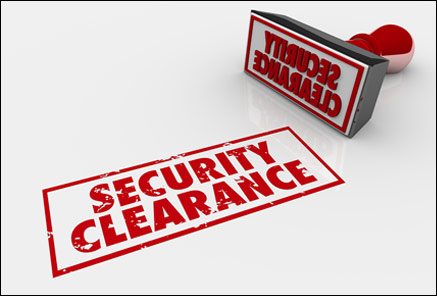
Almost once a week I receive the question, “Will declaring bankruptcy result in me losing my security clearance?” Typically, the answer to this question is no. In most cases, filing for bankruptcy will help you keep your security clearance. Once you file bankruptcy and discharge your debt, you are far less susceptible to blackmail, bribery, or the desire to steal. However, we strongly advise each client considering bankruptcy to check with their employer to ensure that bankruptcy will not negatively impact their career before filing.
It is important to note, that in the past, some took the position that a bankruptcy demonstrated that the clearance holder could not be trusted. However, that is no longer the case. Today, when awarding clearances, the government considers your current likelihood to become susceptible to blackmail or bribery. As such, if you receive a discharge in a bankruptcy, and thanks to your fresh start you avoided the debt, then you are very likely to keep your clearance. In fact, you would be in a better financial position than you were before the bankruptcy. Nevertheless, if you fall back into high debt right after the bankruptcy, then the government may decide it is a risk to continue your clearance. As such, in most cases, the bankruptcy itself is not the risk, but rather your actions before and after your bankruptcy that could impact your clearance.
The most important thing you can do after a bankruptcy is to be honest to the Office of Personnel Management or Federal Investigative Services agent (“the investigator”). These investigators are looking at your personal and financial responsibility. Do not falsify information in any questionnaire or interview. Just be honest; having debt will hurt your chances far less than lying to the investigators.
If you are in a situation where you need a bankruptcy, the investigator will know. They will pull your credit report. You cannot hide your debt by not filing bankruptcy.
Instead, inform the investigator that you have you filed, and that you understand what brought you to needing bankruptcy in the first place. Did you have a major family emergency? Were you living beyond your means?
This is fine; just make sure that after the bankruptcy you adjust your spending habits, and you have reserve savings in case of another emergency. Of course, the government may still deny your security clearance even after all of this. Occasionally, the government may take the position that a debtor knowingly took on far too much debt, with the intention of never paying it off. It is important to repeat that the bankruptcy itself would not impact the clearance, but rather the actions that led to the bankruptcy.
I have seen situations where a person lost her security clearance because she did not file bankruptcy soon enough. In this instance, the woman was told by her employer to file bankruptcy to preserve her clearance, months went by without her filing, and her clearance was revoked.
Which Type of Bankruptcy is Best for Me?
After determining that filing a bankruptcy is in your best interest, the next step is to determine if it would be better to file a Chapter 7 or Chapter 13. It is important to understand how the chapters may impact your clearance.
A Chapter 7 will generally wipe out most of your debt. The first issue with a Chapter 7 is the timing. The investigators will not consider debts resolved until the court has discharged the debt. This could take several months. Thus, if you know your evaluation is coming up soon you may want to request additional time to respond. The second, and more important issue for a Chapter 7 is your circumstance. If it appears that you racked up tons of debt with no possible way to pay it, then getting the full discharge may look bad. However, if you failed to pay due to an unforeseen issue, such as a medical issue, then you will be fine.
If you find yourself in the scenario where you took on far too much debt and there was never a possibility of you paying it back, you may want to consider a Chapter 13. In a 13 you will make monthly payments to pay part, or all, of the debt that you owe. If you are afraid that the investigator will question you filing bankruptcy on frivolous debts, then your Chapter 13 will help.
The Law Offices of John W. Lee, PC has five convenient Hampton Roads locations to serve you. Please contact our experienced attorneys to help you decide which bankruptcy will best protect your security clearance.


